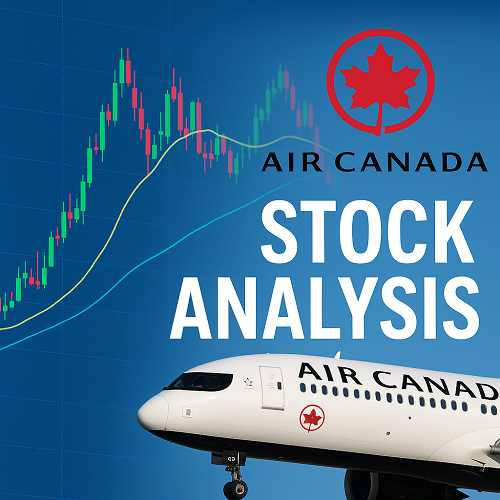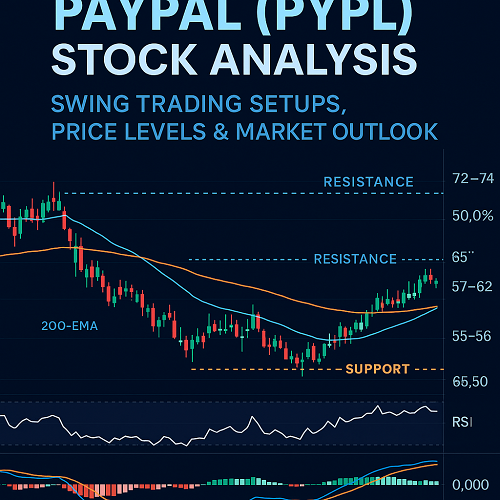Is Air Canada Stock Worth Considering in 2025?
Air Canada (TSE: AC) remains one of the most closely watched airline stocks on the Toronto Stock Exchange. Investors are especially interested in the AC stock price after a turbulent period during COVID-19 and a multi-year recovery. Now they want to know:
- Is AC undervalued or overpriced?
- How strong is the company’s financial recovery?
- What is the long-term outlook for Canada’s largest airline?
- Is AC a smart investment compared to U.S. airline peers?
This article provides a complete deep-dive investment analysis, including valuation, risks, catalysts, financial performance, and technical trends — offering far more depth than a basic quote page.
Company Overview: What Air Canada Does and Why It Matters
Air Canada is the largest airline in Canada, servicing more than 180 destinations worldwide and carrying over 50 million passengers per year (pre-pandemic). Its business segments include:
✔ Passenger Flights
The core revenue driver, spanning domestic, transborder, and international routes.
✔ Cargo Operations (Air Canada Cargo)
A rapidly expanding logistics business that saw massive demand growth during global supply chain disruptions.
✔ Loyalty Program (Aeroplan)
A high-margin segment providing predictable, recurring revenue.
✔ Air Canada Vacations
An integrated travel-package business benefiting from tourism surges.
Air Canada’s financial strength is tied closely to macro travel demand, fuel costs, regulatory climate, and CAD–USD exchange rates.
Air Canada Financial Performance (2023–2025): Recovery in Action
While exact metrics change with each quarterly report, the broader trend is clear:
✔ Revenues have surged back toward pre-COVID levels
Air travel demand rebounded faster than most analysts expected.
✔ Passenger load factors continue rising
Planes are flying increasingly full, improving margins.
✔ Cash flow is stabilizing
Strong bookings drive recurring liquidity improvements.
✔ Debt remains high but manageable
Air Canada took on significant debt during the pandemic. It is gradually paying down but still elevated compared with peers.
Key Financial Strengths
- Improving operating margins
- Robust travel demand
- Strong loyalty program economics
- Cargo and ancillary revenue diversification
Major Financial Weaknesses
- High long-term debt
- Sensitivity to jet fuel and currency
- Cyclical revenue patterns
- Labour-cost pressures
Air Canada Stock Valuation: Is AC Undervalued?
Airlines are often valued using EV/EBITDA, P/E multiples, and cash flow analysis.
Air Canada Valuation Trends
- Historically, AC traded at a discount to U.S. peers due to higher leverage.
- Even in recovery phases, the stock rarely reaches premium multiples.
- Institutional investors focus heavily on balance-sheet risk.
Is Air Canada Undervalued Now?
Possibly — but not purely on traditional metrics.
Air Canada often appears undervalued when revenues surge, yet heavy debt reduces equity attractiveness. Many investors classify AC as:
- a medium-risk cyclical recovery stock
- with high volatility
- and long-term upside tied to macro travel demand
Key Catalysts for Air Canada Stock (2025 and Beyond)
Bullish Catalysts
1. Global Travel Boom
Passenger traffic continues to increase across long-haul, leisure, and business travel segments.
2. Aeroplan Growth
The loyalty program’s recurring cash flows and partner expansion strengthen Air Canada’s earnings stability.
3. Cargo Expansion
E-commerce growth and global supply chain normalization benefit Air Canada Cargo.
4. Fuel Efficiency Upgrades
New, more efficient aircraft reduce operating expenses over time.
Bearish Catalysts
1. Rising Jet Fuel Prices
Fuel is one of the largest expenses; spikes can significantly impact quarterly profits.
2. High Debt Load
Limits flexibility for share buybacks or aggressive growth strategies.
3. Economic Slowdowns
Air travel demand is highly sensitive to GDP contraction.
4. Labour Disputes & Wage Pressures
Unionized workforce agreements can create strain during inflationary periods.
Technical Analysis: Air Canada (TSE: AC) Price Trends
While real-time charts fluctuate, AC stock has shown historically:
✔ Strong resistance near pre-pandemic highs
Buyers typically hesitate at upper ranges due to debt overhang concerns.
✔ Support levels around long-term recovery zones
Institutional buying often occurs when the stock falls into deep-value territory.
✔ High volatility and large price swings
Airlines are notorious for rapid changes due to fuel or travel-demand shifts.
Best Technical Indicators for Trading AC
- RSI for swing-trade oversold levels
- MACD for trend confirmation
- 200-day EMA for long-term reversal signals
- Volume analysis to track institutional accumulation
Should You Buy Air Canada Stock? (Investor Profiles)
AC Stock Is Attractive For:
- Long-term value investors willing to tolerate volatility
- Recovery-cycle traders who buy dips during macro lows
- Investors seeking exposure to Canadian aviation
- Momentum traders during seasonal travel surges
AC Stock May Not Suit:
- Conservative income investors (no consistent dividends)
- Investors with low risk tolerance
- Those avoiding cyclical industries
- Anyone seeking stable, predictable earnings
Air Canada (TSE: AC) Price Forecast
Analysts generally maintain AC as a:
- Hold or
- Speculative Buy
AC’s stock potential depends heavily on:
- macroeconomic direction
- fuel prices
- sustained travel-demand resilience
- the company’s ability to reduce debt
Long-Term Forecast Themes
- If debt reduction stays on track: moderate upside
- If fuel prices remain stable: margin improvement
- If travel demand remains elevated: revenue strength continues
Competitor Comparison: How Air Canada Stacks Up
Canadian Competitors
- WestJet (private)
- Porter Airlines (expanding aggressively)
U.S. Competitors
- Delta
- United
- American Airlines
- Southwest
Air Canada benefits from international dominance, but U.S. airlines often enjoy larger markets and more diversified fleets.
Risks to Consider Before Buying AC Stock
Investing in airline stocks — especially leveraged carriers — involves significant uncertainty.
Major Risks Include:
- Fuel price spikes
- Recessionary travel declines
- High interest expense from debt
- Potential dilutions in extreme downturns
- Fleet maintenance and replacement costs
- Labour disputes
- Currency fluctuations (CAD vs USD)
Investors considering Air Canada should size positions accordingly.
Final Verdict: Is Air Canada (TSE: AC) a Buy?
Air Canada remains a high-risk, high-reward cyclical stock in 2025.
Reasons to Buy
- Strong recovery trajectory
- Growing loyalty and cargo segments
- Improving margins
- Potential long-term upside if debt decreases
Reasons to Avoid
- Elevated leverage
- Cyclical volatility
- Sensitive to macroeconomic shocks
Bottom Line:
Air Canada is best suited for experienced investors who understand the volatility inherent in airline stocks and see value in AC’s recovery story. It is not a stable defensive holding but can offer substantial returns in a strong economy.





 XAUT-USD
XAUT-USD AMD
AMD MARA
MARA SHOP
SHOP BULL
BULL CL=F
CL=F